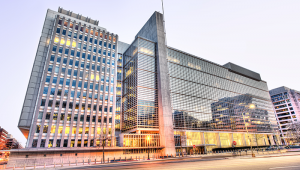In a report released yesterday, the bank found that the country, which is the largest economy in southeast Asia, is proving “resilient” with growth of 5.1% projected for 2016.
But Rodrigo Chaves, World Bank country director for Indonesia, highlighted the impact of an “anaemic global economy” in limiting investment and reform.
The bank recently lowered its growth projections for the world by half a percentage point, to 2.4%.
According to Chaves: “Prudent monetary policy, increased public investment in infrastructure, and policy reforms to improve the investment climate, are helping Indonesia maintain growth in the order of 5.1%.”
The report, titled Indonesia Economic Quarterly: Resilience through Reforms, stated that growth will be further supported by private consumption and public capital spending. Continued policy reforms would, it said, mitigate the impact of slowing demand and financial market volatility globally.
Indonesia has announced a raft of reforms since September 2015, with some areas, such as trade and investment policy, seeing a shift toward deregulation.
But the World Bank report noted that the impact of these policy changes was still unknown, and that “many sectors remained closed” to foreign investment.
It said increased private sector investment was essential for Indonesia, as pressures on the public purse could prevent the government investing in infrastructure, which has hitherto supported economic growth.
The report observed that, despite a lower revenue forecast and more burdensome fiscal deficit of 2.8% of GDP, Indonesia will still be in line to achieve 90% of the original Budget investment target.
In light of a decline in the commodities sector, however, Indonesia could capitalise on the opportunity to expand the manufacturing and services sector. The country’s global share of manufacturing has “stagnated at around 0.6% over the last 15 years”.
Ndiame Diop, lead World Bank economist for Indonesia, said: “This is a critical opportunity for Indonesia to implement further reforms that will enhance the competitiveness of its manufacturing and services sectors, especially tourism.”













